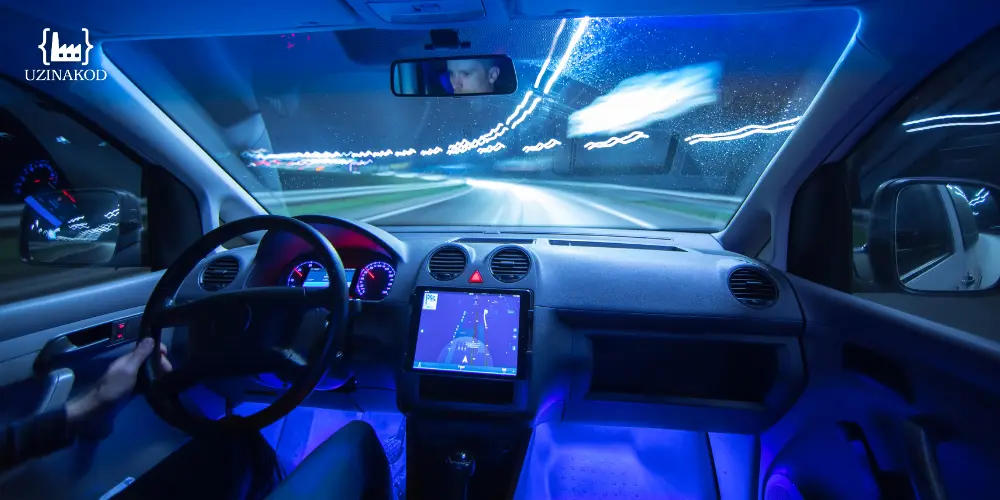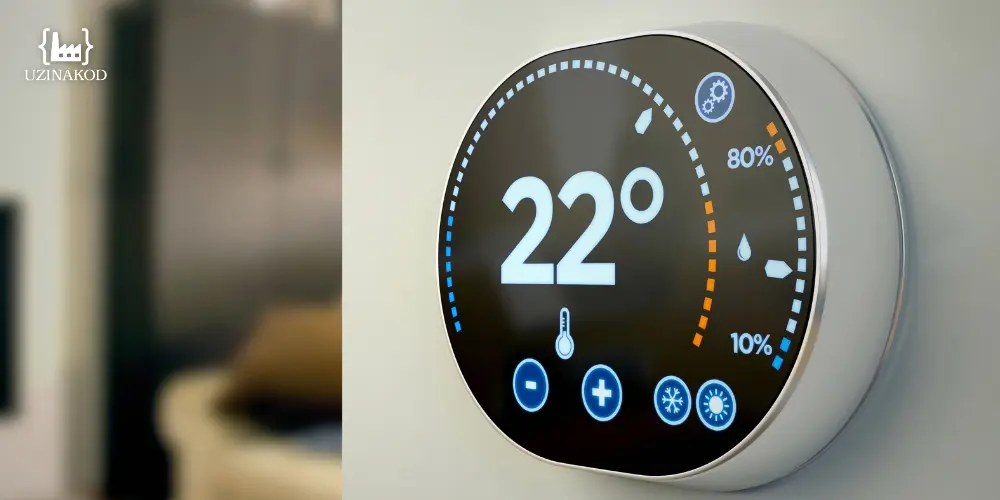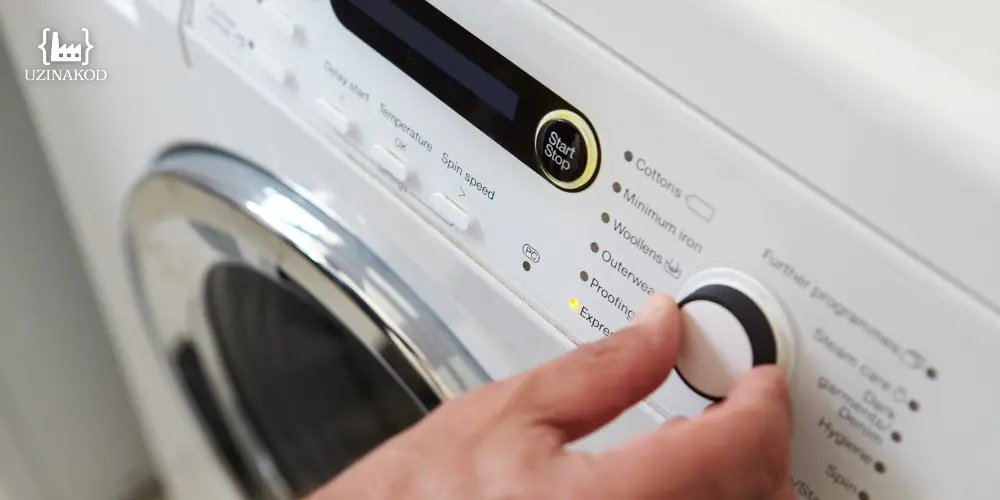In the complex ecosystem of modern technology, a discreet but omnipresent category acts as the engine of our daily lives: embedded systems. These electronic devices manage various operations in devices like smartphones and cars. Often unnoticed, they play a crucial role in how we interact with the digital world and contribute significantly to the ongoing technological revolution.
Embedded systems are designed to perform specific tasks with outstanding efficiency. Equipped with microcontrollers or microprocessors, memory and electronic components, their purpose is to simplify the execution of our tasks and enhance our experience with the world around us.
In 2023, 51% of Quebecers owned at least one smart home device, according to a survey conducted by Laval University’s Académie de la transformation numérique. Can you identify the embedded systems that are an integral part of your daily life?
In this article, Uzinakod’s IoT experts will uncover 5 embedded systems that could be discreetly powering your surroundings, all without you even realizing it!

1. Cars
Cars are evolving at a phenomenal pace, and while being a means of transportation remains their primary role, they have been redesigned to enhance driver experience with the addition of a number of intelligent features.
In fact, today’s vehicles come equipped with various embedded systems, like anti-lock braking systems (ABS) or driver and parking assistance systems to name a few. Even in the case of older models, the radio itself is considered an embedded system. It becomes a connected object when it offers an intuitive interface and a wide range of functions.
Connected vehicles incorporate external intelligent functions, including synchronization with mobile applications. This allows drivers to remotely manage various aspects of their car, such as initiating a remote start, adjusting temperature, or controlling charging.
With features ranging from entertainment to advanced safety, modern cars are redefining the driving experience and demonstrating the increasing synergy between technology and the automotive industry.

2. Smart Watches
Considered contemporary technological jewels, smartwatches have gained immense popularity in recent years. Beyond telling time, these devices, equipped with advanced sensors, integrated processors, and connectivity, play a pivotal role in monitoring physical activity, measuring heart rate, and guiding us through unfamiliar paths with built-in GPS functionality.
Acting as smart extensions to our mobile devices, smartwatches enable users to receive instant notifications, track sleep quality and even control compatible devices. They are often synchronized with our cell phones via a Bluetooth connection, offering integration with our applications and personal data.
From receiving messages to motivating fitness goals or customizing watch faces, smartwatches are turning our wrists into interactive platforms, adding a touch of enrichment to our daily lives.

3. Smart Thermostats
Smart thermostats stand as the pillars of the connected home, revolutionizing the way we manage thermal comfort.
Equipped with wireless connectivity technologies and often integrated with home automation systems, connected thermostats offer intelligent and precise control over heating and cooling. Leveraging data from smart sensors, including humidity, occupancy, temperature, geolocation, and even weather conditions, these thermostats dynamically adjust room temperature for optimal comfort.
By analyzing collected data, smart thermostats learn user preferences and create personalized programs to optimize energy efficiency while ensuring comfort. Additionally, with Wi-Fi connectivity, users can conveniently adjust their home’s temperature remotely through a mobile app.
In short, smart thermostats deliver a more intuitive, energy-efficient, and personalized heating and cooling experience, all thanks to advanced technology.

4. Credit Cards
Modern credit cards, equipped with embedded chips, represent a significant evolution in financial transactions.
Known as EMV chips (Europay, Mastercard, Visa), they incorporate advanced technologies such as Internet memory and autonomous computing capacity, designed to enhance transaction security. When a chip-enabled credit card is inserted into a payment terminal, it creates a secure connection with the banking system to authorize the transaction.
This technology effectively replaces the traditional magnetic stripe, lowering the risk of fraud from duplicate cards. Moreover, these cards also support contactless transactions, allowing swift and secure payments through wireless communication.
In short, although the act of inserting the card with a chip has become less common with the arrival of contactless payments using cards or even cell phones, the chip technology remains a pivotal step in the evolution of tomorrow’s payment technologies.

5. Washing Machines
Washing machines are one of the most common examples of the use of embedded systems in our daily lives. Integrated within the appliance, these systems are designed to efficiently wash clothes, using advanced technologies to optimize the entire washing process.
With the assistance of microcontrollers and intelligent sensors, embedded systems can adapt the wash cycle, water temperature, wash time, and manage drum balance for an optimized spin. These systems empower users to customize wash cycles, providing augmented flexibility to suit individual preferences.
Washing machines achieve connectivity when they can transmit real-time alerts or receive settings from another device, allowing actions like initiating a wash cycle directly from a cell phone.
Ultimately, washing machines with embedded systems showcase how modern technology is enhancing not just the convenience but also the efficiency of everyday household appliances.
Create Your Embedded Project with Uzinakod
In conclusion, embedded systems have been proven to be a subtle yet omnipresent technology in our daily lives. The five connected objects in this article are just a glimpse in the wide range of technologies that surround us and simplify our daily activities. Beyond mere convenience, embedded systems reinforce the growing importance of technology across various aspects of our reality.
At Uzinakod, you not only benefit from the expertise of our IoT architects, but also access a comprehensive 360-degree service to seamlessly execute your project from A to Z. From managing your data to developing a customized application, we have the expertise to support you.
In recent years, we’ve collaborated with many companies to bring their projects to life. From creating embedded firmware architecture for Off The Grid, a company that generates electricity from spinning bikes, to developing a desktop application for updating product components, there’s no limit to what we can achieve.Contact our experts to turn your project into reality





